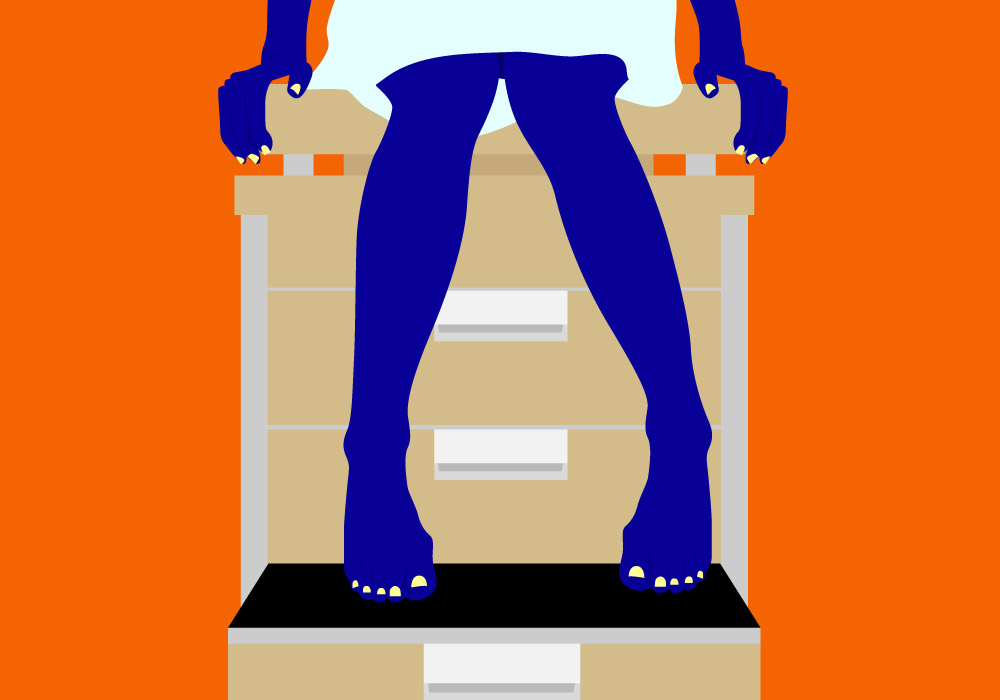
Your waistband is digging into your belly, and your gut feels like you swallowed a balloon that failed to pop. Many of us experience bloating from time to time. But for some, the sensation is a daily source of pain and discomfort.
Bloating is just what you think it is: too much gas trapped in your belly, says Dr. Ashok Tuteja, a clinical professor of internal medicine at the University of Utah. “Your body may be making more gas than it should, or failing to pass gas adequately,” Tuteja explains. His research suggests 21% of adults suffer from frequent bloating, and he says smoking, acid reflux, certain medications and even mouth-breathing may all contribute to the overinflated sensation.
But for most sufferers, bloating is tied to one of three underlying digestion triggers, says Dr. Alessio Fasano, chair of pediatric gastroenterology and nutrition at Massachusetts General Hospital. “Certain components of the foods you eat aren’t absorbed in the small intestine as they should be,” he explains. This may be due to lack of specific gut enzymes, which is the case for people who are lactose intolerant. Those incompletely digested foods then make their way to your colon, where they’re converted to gas, he says. (Fasano is also director of Mass General’s Center for Celiac Research and Treatment, and he says problems digesting gluten can also lead to bloating.)
For others, their guts may contain an overabundance of microorganisms that disrupt the normal breakdown of the foods they swallow. “Or you may be eating so much of certain foods that your intestines can’t process them completely,” Fasano says. “Just eat a pound or so of beans, and you’ll experience this.”
Along with dairy (lactose) and beans, the culpable foods Fasano mentioned tend to be short-chain carbohydrates. Also known as fermentable oligosaccharides, disaccharides, monosaccharides and polyols—“FODMAPs” for short—these include wheat, rye, onions, legumes, fruit, mushrooms, and some other vegetables, says Emma Halmos, a dietitian in the department of gastroenterology at Australia’s Monash University. Halmos’s research has shown removing FODMAPs from a person’s diet can knock out bloating and other symptoms associated with irritable bowel syndrome (IBS) and related gut afflictions.
But you don’t have to permanently ditch all of those foods to feel better. “Foods containing FODMAPs do not need to be completely avoided,” she says, adding that every individual’s gut is different. Cut out those FODMAP foods for a few weeks, and if your bloating problem abates you can start adding them back in one at a time until you identify the problem foods.
For most people, these kinds of diet changes are where your doctor will start when trying to treat your chronic bloating, Tuteja adds. “If we can’t find a specific diet trigger, there are other options, including antibiotics that target bacteria known to interfere with proper digestion.”
So call your doctor or dietitian, and prepare for her to tell you some foods are off the menu for a few weeks. Until then, roomy pants or an extra belt notch’s-worth of room may be required.
More Must-Reads from TIME
- Cybersecurity Experts Are Sounding the Alarm on DOGE
- Meet the 2025 Women of the Year
- The Harsh Truth About Disability Inclusion
- Why Do More Young Adults Have Cancer?
- Colman Domingo Leads With Radical Love
- How to Get Better at Doing Things Alone
- Michelle Zauner Stares Down the Darkness
Contact us at letters@time.com